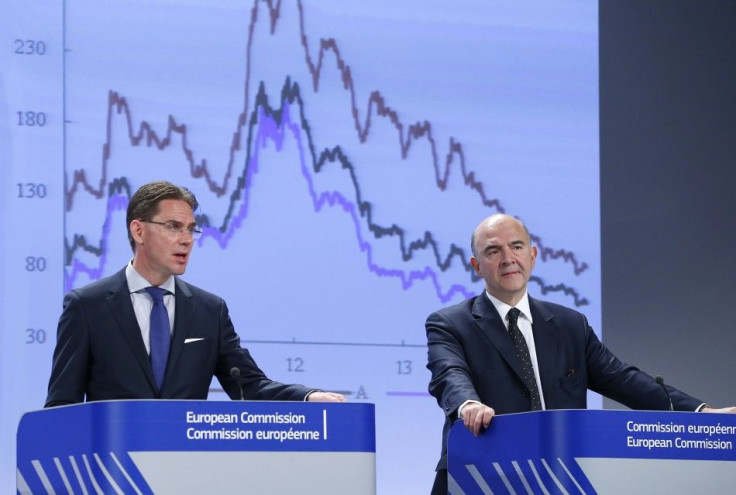2015 Economic Outlook: European Commission Expects Slow GDP Growth

The economic outlook for 2015 is not expected to be robust. A European Commission report suggests that the road to recovery that started in 2013 will continue to remain fragile even in the next year and may pick up steam in 2016.
2014 has not been a very good year for some courtiers in the European region, while some others have done well in terms of recording growth. Cyprus reportedly saw a dip in growth to -2.8 percent, while Ireland grew at a healthy 4.6 percent.
According to Pierre Moscovici, the Commissioner for Economic and Financial Affairs, the need of the hour for robust economic growth is "ambitious structural reforms" and investment in public and private sectors. The report does not mention anything about the austerity policies in some of the countries.
The European Commission expects the Real GDP growth in the EU to be 1.3 percent in 2014. This is expected to rise to 1.5 percent in the year 2015. However, there are still geo-political risks in the region emanating from fluctuations in oil prices due to the terrorist organization ISIL and tensions with Russia.
The growth numbers primarily bank on an expanding private consumption in 2015. This may be a result of a gradual reduction of private debt and an increase in private investment in the economy. Given the economic conditions globally, the contribution of exports to the GDP are expected to be marginal, according to the report.
An increase in investment will also mean more job creation. The European Economic Commission forecasts the unemployment rate to fall to 9.5 percent in the EU in the year 2016. This may give rise to higher disposable incomes among the consumers and the economy may benefit with a low inflation that is expected to prevail over this period.
Jyrki Katainen, the European Commission for Jobs, Growth, Investment and Competitiveness, said that there will soon be a plan to invest 300 billion euros into the economy to achieve better growth in the coming years. The report however notes that the investor confidence in the region is still low, making it a challenge for the policy makers to attract investment and deliver results.





















